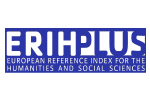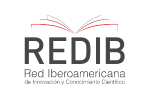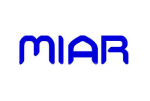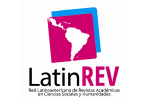About the Journal
PUCARA, revista de Humanidades y Educación (ISSN-e 2661-6912) founded in 1977, is a biannual publication of the Facultad de Filosofía, Letras y Ciencias de la Educación of the Universidad de Cuenca, Ecuador. Its objective is to disseminate in Spanish and English, on a non-profit basis, original research on the different manifestations of culture and society, whose center of interest is the human being, according to UNESCO's fields: arts, fine arts, graphic and audiovisual arts, design, crafts, living and dead languages, regional studies, literature, linguistics, history, archeology, philosophy, anthropology, geography, ethnography, education, among others.
PUCARA does not receive or charge the authors any fees during the entire editorial process for the publication of the different texts, including blind peer review (double blind system), layout and publication. Access to its content is completely open. The University of Cuenca assumes its economic support in its entirety, through the Vice Rector for Research and Innovation.
Finally, communication with the academic community worldwide is one of PUCARA’s pillars and objectives. Thus, its website is continuously updated to receive and process the different manuscripts and / or documents, so authors have first-hand information. The responsibility for incorporating, updating or removing information lies with the journal’s Editor-in-Chief l, in collaboration with the Editorial Committee and the editorial managers.
PUCARA does not receive or charge the authors any fees during the entire editorial process for the publication of the different texts, including blind peer review (double blind system), layout and publication. Access to its content is completely open. Universidad de Cuenca assumes its economic support in its entirety, through the Vice Rectorate for Research and Innovation.
In the case of research articles and essays, once a manuscript is received, using the template provided on the web page, it undergoes an initial review by the Editorial Board to determine if it meets the journal’s editorial standards. Subsequently, upon passing this first review, the manuscript undergoes a double-blind peer review process by external reviewers, which should not exceed four weeks.
External reviewers will send their decision in the format required by the journal, which can be: accepted, accepted with modifications or rejected. If the article is accepted, it proceeds to the editing and layout process. If the article is accepted with modifications, it will be returned to the author for the necessary revisions. Once the author has made the necessary revision, the manuscript will move to the editing and layout process. If the article is rejected by both reviewers, it will be returned to the author with an explanation of the reasons for rejection. In any case, the article selection process, including all these steps, should not exceed six months. Once the final manuscripts have been accepted and formatted, they will be sent to the author for approval in the publication format (printing proofs).
In the case of reviews, interviews, and literary texts, the Editorial Board, through its section editors, will appoint experts to evaluate the submissions under the same peer review system, ensuring their quality and originality. Unlike the process for research articles, this process should not exceed two months.
An author may not publish more than one article (either as sole author or co-author) in the same issue. Additionally, it is not possible for the same author to publish in consecutive issues, even as a co-author.
PUCARA adheres to the Open Access model, in which the contents of scientific publications are freely available in full text on the Internet, and editorial production costs are not transferred to the authors. This policy seeks to break down the economic barriers that generate inequalities in both access to information and the publication of research results, favoring the global exchange of knowledge.
The benefits of Open Access for authors include:
- Free access for all users globally
- Retention of copyright by the authors
- Greater visibility and readership
- Rapid publication
- Enhanced opportunities for networking
Acceptance of the manuscript by PUCARA implies that it is not simultaneously submitted to other journals or editorial bodies. It also involves the non-exclusive transfer of the authors' economic rights in favor of the publisher, who permits reuse of the work, after editing (postprint), under the terms of the Creative Commons Attribution-NonCommercial-ShareAlike 4.0 International License (include link). You may share, copy, distribute, modify, transform, generate a derivative work, perform and publicly communicate the work, provided that:
- a) Authorship and the original source of publication (journal, publisher, URL of the work, DOI) are properly cited;
- b) The work is not used for commercial purposes; and,
- c) The same terms of the license are maintained.
The assignment of non-exclusive rights also implies the authors' authorization for the work to be deposited in the institutional repository and disseminated through the databases that the publisher considers appropriate for indexing, with the aim of increasing the visibility of both the publication and its authors.
PUCARA has a long-term archival preservation policy, supported by the Public Knowledge Project (PKP) Archiving Agency, whose data is tracked by the Keepers Registry. The PKP preservation network is based on LOCKSS preservation technology and its ongoing commitment to robust standards and protocols.
Upon publication, issues of the journal are automatically deposited into the distributed LOCKSS network of participating nodes. This creates a decentralized archival system across collaborating libraries, enabling them to create permanent archives of the journal for preservation and restoration purposes.
The entire content of PUCARA is preserved not only in the digital repositories of the University of Cuenca and the international repositories of the databases where it is indexed, but also through the use of persistent identifiers (such as DOIs), which allow reliable access and facilitate data retrieval.
PUCARA adheres to the ethical standards and codes of conduct for publication, established by COPE.
The Editorial Board of the journal Pucara is committed to high ethical standards and good practices in the dissemination and transfer of scientific articles, aiming to ensure scientific rigor and quality. The driving forces of the Editorial Board are: ensuring the quality of the materials published, respecting freedom of expression, maintaining the academic integrity of its content, and publishing corrections, clarifications and apologies when necessary.
Through PUCARA's website, authors have access to information about the submission guidelines and the peer review process; as well as documents designed to assist authors, reviewers, and editors, ensuring transparent and effective communication.
Editors will not modify their decision regarding the acceptance of manuscripts, unless irregularities or extraordinary circumstances are detected. PUCARA provides reviewers a guide outlining expectations for their role, through a review template that is continuously evaluated to maintain the quality of published materials. It is necessary to indicate that the identities of both reviewers and authors are protected at all times, guaranteeing anonymity, transparency, and comfort throughout the review process.
Pucara is committed to publishing articles based on their quality and relevance at every stage of the process. The journal is committed to free access to knowledge, freedom of thought, and equal opportunities.
Authors' responsibility: Authors are responsible for the ideas and data contained in the manuscripts, the accuracy of the information provided, for the correctness of quotations, the rights to publish any material included in the text, and for submitting the manuscript in the format required by the Journal (Word template). A manuscript submitted to PUCARA must not have been previously published, nor simultaneously been submitted in the same form to another publication medium.
Copyright: Published articles do not necessarily reflect the views of PUCARA, which adheres to the Creative Commons Attribution-Noncommercial 4.0 International (CC BY-NC 4.0) license. Each author retains the right to the article published in PUCARA.
Personal data and email addresses entered in this journal will be used, exclusively for the purposes stated by the publication and will not be made available for any other purpose or person.
Guidelines for Reviews, Interviews, and Literary Texts:
Reviews: In the case of critical reviews, the title should include the following: the name of the author of the book reviewed, the title of the book, and its publication details. At the end of the review, include the name of the reviewer, his/her email address, and its institution affiliation (if applicable). The length should not exceed five pages.
Interviews: Interviews should not exceed eight pages. Their objective is to explore the main characteristics of the interviewee’s work, his/her personal and cultural trajectory, and the social implications of their contributions. The date on which the interview was conducted must be indicated.
Literary texts: This section aims to promote the new literary production of already established authors as well as, and above all, promote emergent voices in Ecuadorian and global literature. Submissions may be short stories or poems, with a maximum length of eight pages.











